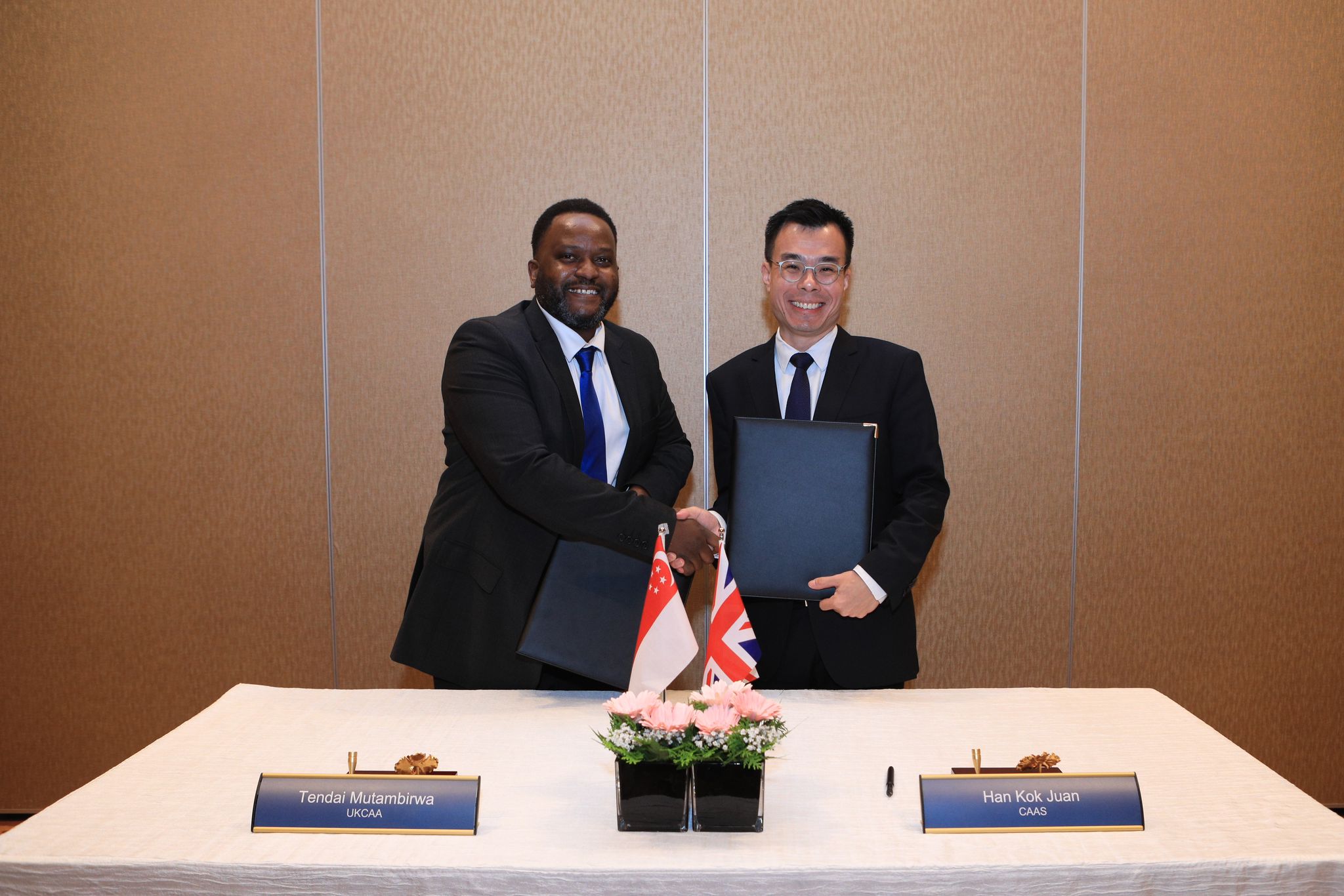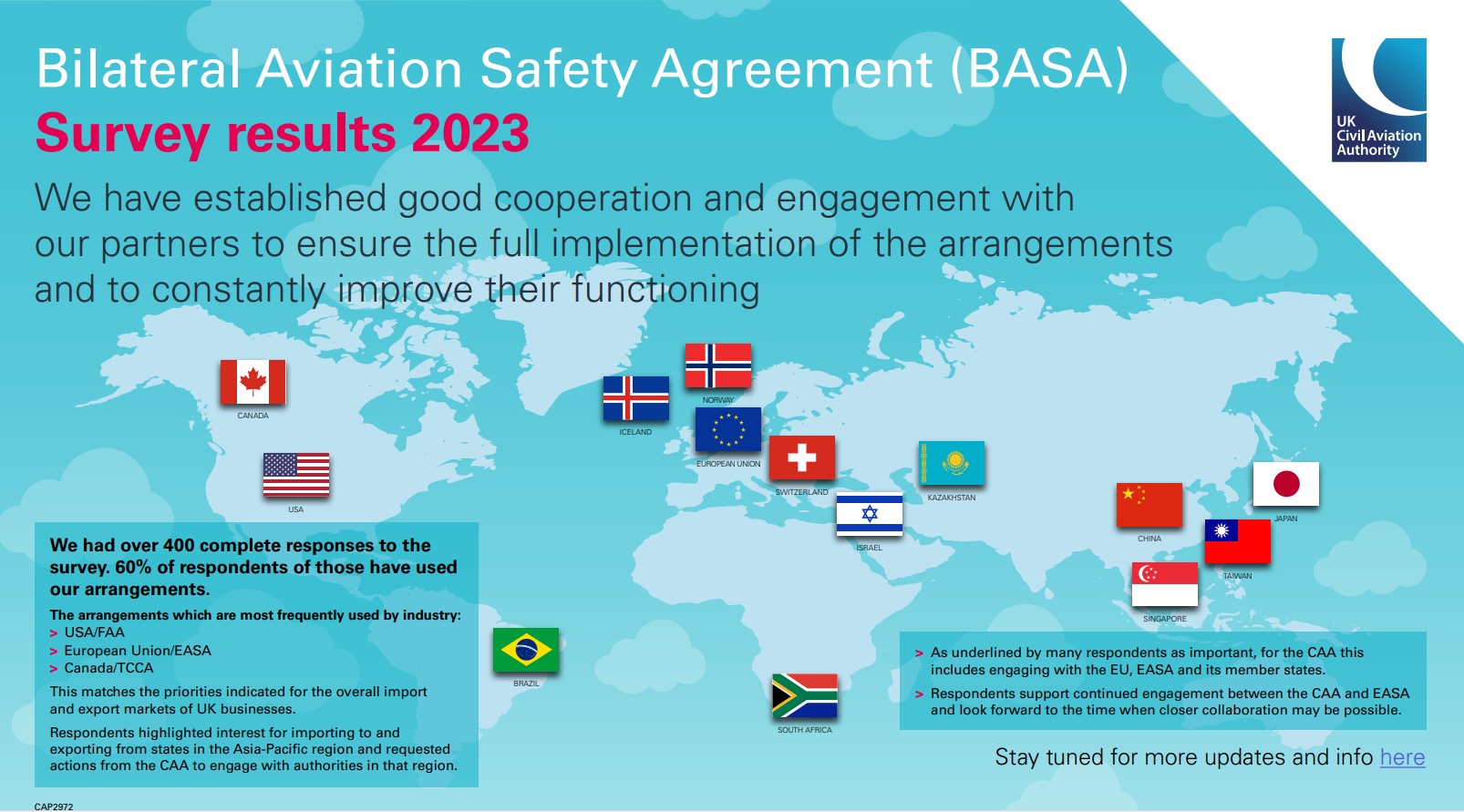A crucial aspect of maintaining aviation safety is our engagement with international partners and other National Aviation Authorities. Often this happens through establishing Bilateral Aviation Safety Arrangements (BASAs), which are part of our mission of protecting people and enabling aerospace.
These arrangements usually come in the form of Working Arrangements or Memorandum of Understanding, supplemented by Implementing Procedures which describe the more technical details of each arrangement.
They are generally established between National Aviation Authorities or sometimes on a state-to-state level, facilitating cooperation and mutual recognition of each other's aviation standards, approvals, and certificates.

Our work in developing and maintaining arrangements
The small team that I am part of establishes, coordinates, and manages these arrangements. To do this we usually draw on the invaluable expertise of colleagues within the Civil Aviation Authority for technical insights and legal guidance. Our work also revolves around developing and maintaining arrangements that span the globe. You can see our arrangements with our partners on our website page on Internal Cooperation.
These arrangements cover a range of safety areas, including airworthiness arrangements for aircraft design, production, certification, and maintenance. They also allow for the import and export of aircraft, parts, and the provision of services. Through collaboration with our international counterparts, we ensure that aviation products and services adhere to stringent safety standards, while reducing the administrative burden for the industry.
Our partnerships with other authorities
Following the UK’s exit from the European Union, the BASA team has concluded arrangements with close partners, which also have the highest trade and exchange of aviation products and services with the UK. This includes, among others, the US, Canada, Brazil, and the European Union.
The Trade and Cooperation Agreement concluded between the EU, the UK, and the associated Technical Implementation Procedures between the Civil Aviation Authority and European Union Aviation Safety Agency (EASA) hold particular importance given the intertwined nature of both markets.
We have established good cooperation and engagement with all our partners to ensure there is full implementation of the arrangements, now entering into a phase where we are refining their function.

Our plans to improve future agreements
In order to allow us to continually improve and explore the best options for our industry, we recently conducted a survey to gather feedback from industry stakeholders on their experiences with bilateral arrangements. The results are published on our website. The detailed responses we received have helped to give us strategic guidance in our daily work.
Most recently, we finalised a new technical arrangement with the Civil Aviation Authority of Singapore (CAAS). The arrangement, which covers design, production, and certification, was signed at the Changi Aviation Summit held in Singapore, showing how we are expanding cooperation to enhance safety oversight and regulatory alignment.
Overall, the BASA team in the UK Civil Aviation Authority continues to be busy, proactively maintaining and developing engagement and collaborative relationships with our partners to create business opportunities, reduce administrative burden, and ensure the highest safety standards globally.
News from UK Civil Aviation Authority
- UK Civil Aviation Authority and Ministry of Defence join forces to build pathway into civil aviation for military personnel
- Regulator’s accessibility assistance report highlights progress made by most UK airports but finds three airports need improvement
- Groundbreaking roadmap for aircraft of the future released



Leave a comment
Comments have closed for this blog post.